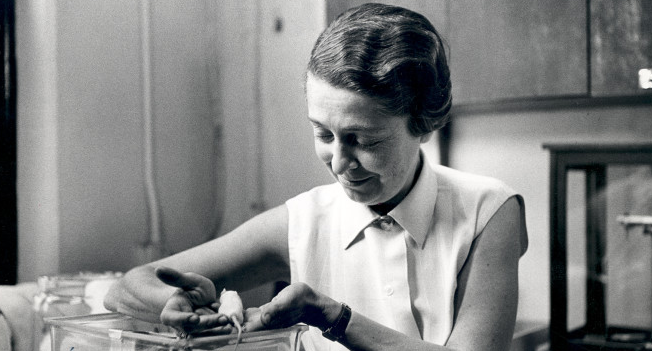
What is Nerve Growth Factor (NGF)?
Most people in the scientific community now accept that the brain continues to repair itself and create new brain cells throughout life. The birth of new neurons in the brain is referred to as neurogenesis. Nerve growth factor (NGF) is a group of small protein-like molecules called neurotrophins that are responsible for neurogenesis or the development of new neurons and for the health and maintenance of mature ones.
The Research

Dr. Rita Levi-Montalcini, an Italian American neurologist, won a Nobel Prize for discovering nerve growth factor in 1996. Researchers found that NGF may promote the growth, maintenance, and survival of neurons and axons. It’s also thought to help repair the myelin sheath, which is the insulating coating around the axons. Lab experiments found that as the production of NGF decreases in the brain, the ability to form new connections and to retain and access memories becomes impaired. They believe NGF might save degenerating nerves and help restore their function.
How Does the Brain Use Nerve Growth Factor?
For one, neurons in the brain use Nerve Growth Factor to communicate within short distances. Neurons also use NGF for maintenance, development, and practical functioning in our central and peripheral nervous system. The central nervous system consists of neurons (or nerve cells) in the spinal cord and brain. The peripheral nervous system consists of the rest of the body's neurons. Essentially, the peripheral nervous system collects sensory messages (in the form of neurons) from the body. Then, it sends these neural messages to the central nervous system for interpretation by the brain. NGF aids in this process.
Where is NGF Produced in the Brain?
NGF plays an important role in neuron regulation for optimal cognition throughout the brain. We know this because it is produced in various parts of the brain. Specifically, it has been found in the cerebral cortex, cerebellum, hippocampus, thalamus, striatum, basal forebrain and the brain stem. These brain regions are linked to various cognitive processes from motivation and attention to memory and mood balance. Ultimately, NGF is an integral part of numerous brain processes. It may be especially beneficial for men and women experiencing the effects of age-related memory changes. Recent studies show:
- NGF has shown to be present in the hippocampus, which is associated with memory.
- NGF may help rejuvenate tissues after they experience "acute or chronic stressful events”.
- NGF supports the survival and maintenance of cholinergic neurons, which play a primary role in attention, memory, motivation and arousal.
Procera Products That Support Nerve Growth Factor (NGF)
Many of the ingredients in Procera products increase Nerve Growth Factor (NGF) and thus key cognitive functions such as memory and attention. To name a few:
Phosphatidylserine (PS):
Plant-based, phosphatidylserine is one of the key building blocks for the billions of cells (healthy cell membranes) in your brain. It supports brain cell membrane integrity and also protects cells. Available in Procera Advanced Brain.
L-Theanine:
Derived from green tea, this amino acid is known to induce feelings of calmness while simultaneously improving alertness. Available in Procera Mood and Procera Sleep.
Lion's Mane Mushroom:
s a research-backed nootropic mushroom that has shown to activate the production of NGF in the brain, boosting learning and memory. Available in Procera’s newest product, Procera Proclarity, and Procera MegaMushroom.







.png?width=1350&name=Procera%20Logo%20W%20Tagline%20White%20(3).png)
Comments
Add Comment